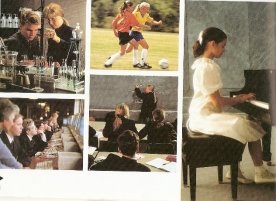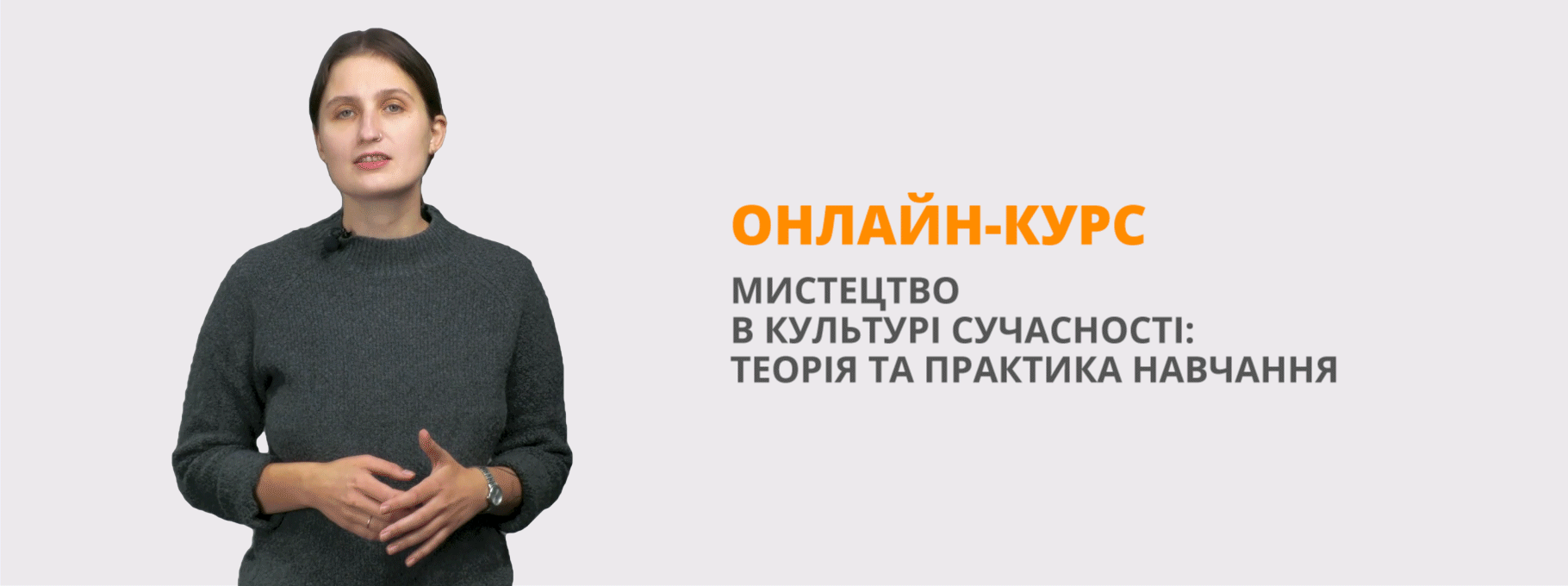Середня освіта в Україні. Вибір майбутньої професії.
Урок-диспут за темою: «Середня освіта в Україні»
(10 клас)
Subject of the Lesson: Secondary education in Ukraine
Type of Lesson: knowledge systematization and generalization
Method: project
Equipment: slides, multimedia screen, computer, printed report.
The Teaching Aims:
1. Develop students’ speaking and listening skills;
2. Stimulate students’ thinking and discussion;
3. Motivate students’ to make a personal response to the stated problem;
4. Teach more about the Ukrainian school curriculum;
5. Encourage students to express personal preferences.
The Educational Aims:
1. Provide the system of cooperative work at the lessons;
2. Educate students about effective activities at school to go on to further studies and get a good job;
The Developing Aims:
1. Develop students’ attention, memory, critical and logical way of thinking;
2. Promote students’ interest in school subjects;
3. Motivate the students’ spontaneous speaking;
The Upbringing Aims:
1. Stimulate students’ thinking and discussion;
2. Provide students with the information about education in Ukraine;
3. Motivate students to increase their knowledge and awareness about pros and cons of education;
Equipment and visual aids:
1. Pictures of school subjects and activities;
2. Handout material;
3. Tape – recorder;
Procedure of the Lesson
I. Preliminaries of the Lesson.
Greeting. Reporting the subject and the objectives of the lesson.
II. Warming up.
T: I wonder if you like studying and if “yes” what your favourite subjects are. I want to know what you are fond of and what you can’t stand doing.
S1: I am fond of sports and outdoor activities;
S2: As for me, I prefer learning science as want to become an engineer;
S3: Personally, my ”cup of tea” is English;
S4: I am also interested in foreign languages to be an interpreter;
S5: I love composing music, but I am not so good at it.
III. The Main Part of the Lesson:
Developing listening skills:
T: Now, students, we are talking about the person who is able you to fall in love in school subjects introducing the teaching material in the best way. Everyone knows that a teacher plays a great role in the process of teaching.
A real teacher makes lessons interesting; provide students’ cooperative work to develop their creative and logical thinking. Thus, learning becomes more enjoyable, cognitive and effective.
Now let’s talk about the profession of teacher.
Task1.
Pre – Listening Activity
T: Look at the list of qualities and say which in your opinion are the most important ones needed to be a good teacher.
A good teacher should:
a) speak clearly
b) establish a friendly relationship with students
c) have a lot of confidence in front of large groups
d) understand students’ individual needs
e) encourage students to be creative
f) keep tight control of a group of students
g) give students a lot of praise and support
h) attend refresher courses regularly
i) spend time preparing lessons thoroughly
j) punish students who don’t work hard enough
While - Listening Activity
T: Listen to the tape and tick the ones which are mentioned.
(tapescript)
Post - Listening Activity
Talk and discuss the following:
T: Which qualities do you think a good teacher should have? Is it important working at school? Why?
Use the words and phrases to express opinion:
(I believe, In my opinion, I think, In my view, I strongly believe, I feel that, It seems to me that etc.)
S1: I strongly believe that a good teacher should be able to understand students’ individual needs;
S2: I strongly believe that he (she) must be an educator;
S3: In my view a real teacher must take his (her) personal experiences and knowledge and finds a way to impact young minds;
S4: I feel that a teacher must be the personality to be proud by students;
S5: I think he (she) must love what he (she) does and has to work for the results;
S6: We are lucky to have such mature, well-educated, friendly, kind and hardworking teachers.
IV. Dialogical speaking development.
Task1.
T: Exams are the essential part of the process of teaching at school. Do you think there is a necessity in taking final exams? Would you change something? Read the following comments made by students and decide whether each is for or against taking exams. Please, give some reasons.
Use the linking words: moreover, as well as, but, however, on the other hand, also, furthermore, etc.)
(Students are talking about the pros and cons of setting exams)
FOR
- Exams encourage students to study;
- Exam grades give students an idea of their progress;
- Exams are the quickest way of testing students;
AGAINST
-Students can cheat and get a mark they don’t deserve;
-If students run out of time, they cannot show what they really know;
-If students get nervous, they won’t perform as well as they could;
(Students’ discussion)
S1: I think exams encourage competition between students.
S2: I agree up to a point, but don’t you think a student can cheat and get a mark he doesn’t deserve?
S3: Yes, that’s true but exams are the quickest way of testing students.
S4: Yes, however many students get really nervous at exam time and they don’t do as well as they could in an ordinary class test.
Task2.
T: All of you, children, know that choosing a good career depends on if you study hard or not at school and what results you will have on your Independent Test. Thus, I want you to evaluate your school activities due to the school subjects. To fulfill this kind of work, you should be ready to evaluate your studying in the basic subjects, filling in your marks in the table. Then, you have to exchange your school reports with your partner to give the evaluating comments to each other about what subjects each of you is good or bad in and try to predict the future career.
The classmates’ comments to fill in the table:
S1: Try hard, but you need to concentrate more
S2: You are able and show great promise
S3: Do more revision to remember more facts and events
S4: You are full of imagination and creativity
S5: You have a flair for languages
S6: You are interested and eager student
S7: Work more to get results;
S8: You participate but do not enjoy the lessons;
S9: You are extremely gifted student
S10: Poor at it as it is difficult for you.
|
SUBJECT |
MARKS/12 |
CLASSMATES’ COMMENTS |
|
Maths |
|
|
|
English |
|
|
|
History |
|
|
|
Art |
|
|
|
German |
|
|
|
Computer Science |
|
|
|
P. E. |
|
|
|
Music |
|
|
The appropriating kind of career (students put a tick ( ) by the career):
|
Doctor Journalist Teacher Interpreter Artist |
P. E. teacher Fashion designer Accountant Computer programmer Composer |
Students are giving some advice to their classmates using the information from the table and following expressions (I don’t really think…, I am sure you will be a good…, it would be better if you choose a career of…, in my opinion, you have to try harder to get good results in….).
S1: In my opinion, you might become a good journalist as you are good at foreign languages;
S2: I am sure you will be a good programmer because you are good at computer science.
Task3. Projects’ Presentation
 (group work at a “round table”)
(group work at a “round table”)
Students discuss the school subjects focusing their attention on their pros and cons using the arguments and supported reasons.
T: Look at the following pictures which show school subjects and decide which the most important subject is and which is the least important. What other subjects would you like to see on a school curriculum? Why?
S1: - Well I think maths is the most important subject. A good basic knowledge of this will help students in many other subjects such as the sciences.
S2: - Yes, but I’d like more languages included in the school curriculum. It is important for everyone to be able to speak another language apart from their native one.
S3: - I agree, however…..
V. Home task
Make up the project on the subject:
“Should everyone have a university education?”
“Bad and good points of working and going to school at the same time”
“Computers can help you to get information….”
VI. Conclusion
T: Education as a discussion point is very topical nowadays. School is the first and the best way of preparation for the working life. School provides the basic education necessary to go on to further studies and get a good job. School enables young people to learn to mix with others, work as part of a team and learn basic social skills which will assist students in their working lives.


про публікацію авторської розробки
Додати розробку
